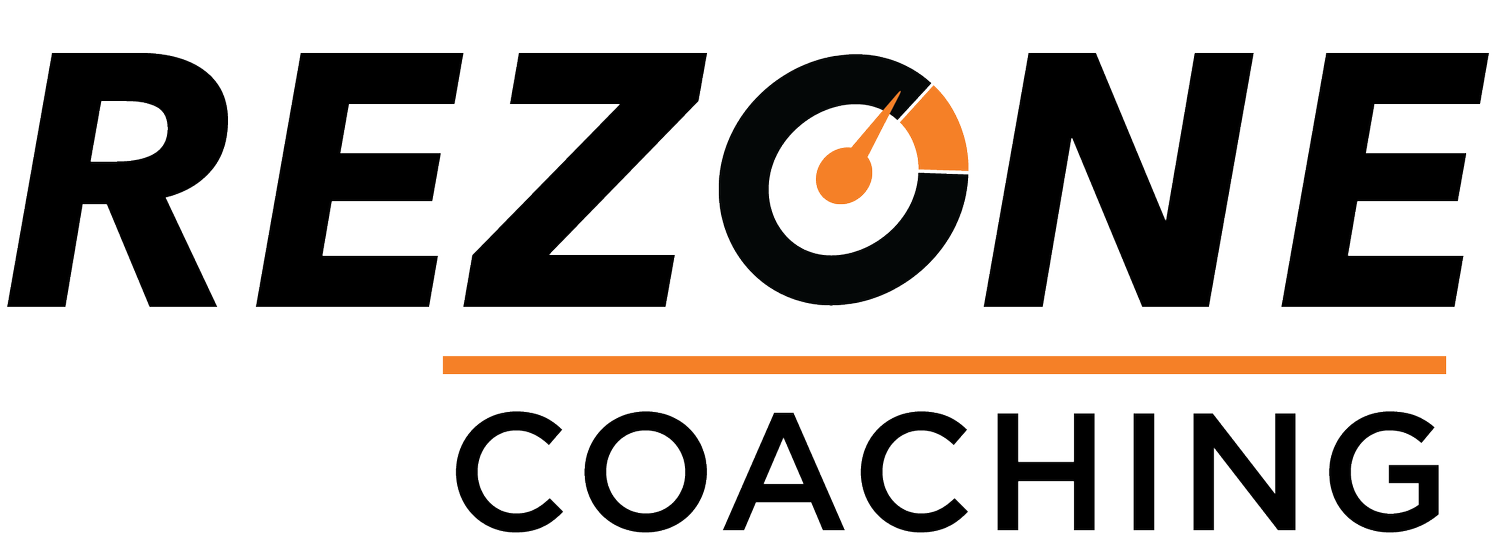
Brian’s Blog
For more resources, check out the ReZone Learning Library.
Three Shifts That Help Senior Leaders Think More Clearly and Lead with Greater Confidence
Senior leaders face constant pressure and fast-paced demands. This article explores three small shifts that help executives protect clarity, think more deliberately, and lead with greater confidence when the pace is high.
When Senior Leaders Carry Too Much Alone
Senior leaders often carry more weight than they realize. This article explores why pressure builds at the top, how clarity returns when space opens up, and why steady leadership requires room to think.
The Blind Spots Every Executive Eventually Hits
Blind spots shape how leaders are experienced in ways they rarely notice. This post explores why awareness sharpens impact and how simple adjustments improve relationships and performance.
Executive vs Business Coaching
Executive coaching develops leaders. Business coaching develops organizations. Learn the key differences so you can choose the right coach.
How Coaching Helps Overcome ESG Challenges in Digital Leadership
I discussed the critical role of effective communication in digital leadership, particularly when navigating complex and potentially controversial issues related to ESG (Environmental, Social, and Governance) challenges. As leaders strive to address these challenges, their ability to genuinely connect and communicate with others becomes paramount. Many coaching programs (mine included) offer individuals insights into their unique communication tendencies and coach them on modulating their style to maximize alignment with others and achieve organizational goals.
This Forbes article explores how coaching can be instrumental in overcoming ESG challenges in digital leadership. In addition to my contribution, you'll discover a range of insights that highlight the transformative impact of coaching in addressing complex leadership issues.
15 Ways Leading With Self-Empathy Promotes a Leader's Growth
My contribution emphasizes the importance of confronting imposter syndrome to promote personal growth and leadership development. Imposter syndrome is a common challenge leaders face, especially as they step into new, demanding roles. However, by openly discussing these fears and learning to push through them, leaders experience personal growth and inspire others to do the same. Confronting imposter syndrome demonstrates vulnerability and resilience, qualities that can encourage and motivate others.
The article shares 15 ways in which leading with self-empathy can foster a leader's growth. In addition to my contribution, you'll discover a wealth of insights highlighting the transformative power of self-empathy in leadership.
Asking Good Questions To Motivate Teams
This article offers invaluable strategies for leaders looking to uncover what drives their teams and how to effectively harness that motivation.
In my contribution titled "'What truly matters to you, and why?'" I emphasize the importance of understanding the unique motivations of each team member. As leaders, we can only motivate others when we truly understand their goals, values, and driving forces. Armed with these insights, leaders can tailor strategies that align organizational missions and goals with each team member's individual values and interests, creating a win-win situation for everyone involved.
Building High-Performing Teams By Creating Psychological Safety
This article offers invaluable strategies for leaders looking to cultivate an environment of psychological safety within their teams, ultimately leading to higher performance.
In my contribution titled "Encourage Challenging Of The Status Quo," I highlight the importance of challenging the status quo as a means to foster psychological safety. It's essential for leaders to encourage team members to challenge conventional thinking, as conformity of thought can stifle innovation and growth. By valuing and implementing diverse ideas, leaders not only enhance psychological safety but also demonstrate the importance of challenging the status quo for team productivity and success.
Cultivating Open-mindedness in Teams
This article explores essential strategies for cultivating open-mindedness within teams, offering actionable advice for leaders and professionals alike.
In my contribution, titled "Share Helpful Real-World Examples," I discuss the importance of using real-world success stories to challenge fixed-mindset mentalities among team members. As leaders, we're encouraged to adopt a coach-like approach, asking probing questions to uncover underlying attitudes. When these inquiries reveal a fixed mindset, it's crucial to supplement them with concrete examples of success. By illustrating what's possible through real-world examples, we not only provide an alternative perspective but also teach team members to be open to new possibilities.
The Leader’s Role in High Growth Situations
Todd Westra hosts the Growth and Scaling Podcast. His audience is primarily CEOs, Founders, and Executives leading high-growth companies with ambitious goals.
Todd contacted me to be a guest to explore leadership's role in many of these high-stakes situations.
In this quick 30-minute conversation, we covered a lot of topics beyond what was originally on the agenda.Some of the highlights include:
What is a 360 review and how does it work?
How to identify challenges leaders are creating for themselves.
What skills matter most for busy leaders in high-pressure situations?
Several examples of leaders facing self-imposed barriers they’ve ignored for years.
We discussed all this and much more. If the topics above peak your interest, I encourage you to check out the conversation!
Navigating 360 Feedback: 10 Insider Tips for Effective Reviews
Have you ever dived into something and wished someone had given you a heads up on what to expect? That's exactly how I felt after my first 360-degree feedback assessment. In my Forbes article, “Navigating 360 Feedback: 10 Insider Tips For Effective Reviews” I put together a toolbox full of unique, not-so-obvious tips I wish I had back when I first began using 360s.
These tips will apply whether you are conducting the 360 or you're the one being reviewed. As an executive coach, I’ve guided dozens of folks through this process.
I’ll cut through the jargon and make this journey smooth for you. Let’s dive into my ten tips. You can read the entire article here.
20 Important Things Corporate Board Members Want CEOs To Do
In my contribution, titled "Be Clear, Concise, Vocal, Flexible And Open-Minded," I emphasize the importance of communication skills for executives when interacting with board members. CEOS must be clear and concise, respecting the time constraints of board members. Additionally, being vocal with honest, forward-thinking ideas is key. Equally important is the ability to remain flexible and open-minded, especially when receiving feedback from the board. Though sometimes seeming harsh, this feedback is usually aimed at fostering efficiency and should not be taken personally. It often comes from busy, fast-thinking board members focused on achieving the best outcomes.
15 Helpful Qualities Leaders Build By Increasing Their Self-Awareness
In my "Strong Interpersonal Relations" contribution, I address a common blind spot among leaders: the inability to relate effectively to others. Beyond the behavior, many leaders fail to fully appreciate the negative impact on their leadership and the team dynamics. By cultivating ongoing self-awareness, leaders can identify and bridge this gap by making conscious adjustments that enhance their leadership capabilities while improving their impact and outcomes.
The article is an invaluable resource for leaders at any level who seek to deepen their own self-awareness and its positive effects on their leadership. Beyond my contribution, 14 other leadership experts shared amazing insights that all roll up into one comprehensive guide on how leaders can develop crucial qualities through heightened self-awareness.
20 Common Obstacles Standing In The Way Of Team Transformation
The obstacle I shared titled "Uncommitted Leadership" emphasizes that the dedication of the primary leader is absolutely essential, particularly when juggling multiple priorities. Without this unwavering commitment from the top, expecting the entire team to follow suit is not just unrealistic, but also naive. It's the leader's responsibility to set the right tone, which significantly reduces resistance and empowers the team to navigate unforeseen challenges and realize their utmost potential.
The article is a treasure trove of knowledge, offering insights into 20 common hurdles that teams face during transformation processes. My contribution, along with those from 19 other experts, sheds light on the multifaceted nature of team dynamics and the varying factors that can either hinder or foster successful transformation.
Life-Threatening Experiences, Recovery & Coaching: CEO Wisdom Podcast Guest
The conversation was more free-flowing. In this quick 25-minute conversation, we covered a lot of topics. Some of the highlights include:
My mountain biking accident and the subsequent insights I gained during my recovery
Other life challenges that have helped to shape my perspective on life and business
Corporate leadership trends, frustrations and opportunities for executives
Executive emotions & stoicism
Misunderstood executives and the challenges they face
Ai’s Impact on corporate leadership & the coaching field
We discussed all this and much more.
Why “GO PUBLIC” With Your Feedback: Simply Feedback Podcast Guest
There are many nuances to feedback - its impact, the art of giving and receiving it, and much more. In this conversation, we explored many real-life stories involving the use of feedback and its impact, both positive and negative.
The conversation dove deep into the ReZone 360 Feedback process including what mistakes to avoid when implementing a 360-Degree feedback assessment and how to make the most of the development process after the assessment has been complete.
Leadership Development That Actually Works
If you want your organization to thrive, you need everyone to perform at the highest level possible. You need leaders to be aligned with each other and those they lead. You need an environment that brings out the best in people, connects them more deeply to each other and demonstrates that you care for them and you see them as an important part of your organization’s future.
Four Realities Leaders Must Face as They Tackle Larger Roles
For as long as I can remember, I’ve been committed to doing my best at work. I paid attention to every detail. I never let anything slip through the cracks. I listened carefully. I looked for ways to learn more, get better and grow in every situation.
20 Important Reasons Coaches Should Be Wary of Overusing AI Tools
In this article, I highlighted a crucial point regarding the limitations of AI in coaching. While AI tools offer valuable support, their capabilities are inherently limited when it comes to understanding the intricacies of human behavior—ranging from critical thinking and self-leadership to communication and relationships. These aspects are unique to each individual, and AI cannot replace the nuanced and personalized support that only a human coach can provide.
This article explores a comprehensive list of reasons why coaches should exercise caution in overusing AI tools. In addition to my contribution, you'll discover a range of insights that shed light on the potential drawbacks of overreliance on AI tools in coaching.
Mastering Personal Change: A 6-Step Blueprint
This article outlines a comprehensive six-step approach to mastering personal change. Each step is backed by real-world examples and insights I’ve gained from my coaching practice, where I've witnessed individuals triumph over obstacles and achieve profound personal growth. I emphasize the importance of self-awareness, goal-setting, and resilience in this transformative journey.
If you're embarking on a path of personal change, this article will give you valuable guidance from someone who has walked this path with countless individuals. Gain a deeper understanding of how to navigate and succeed in the realm of personal transformation by reading "Mastering Personal Change: A 6-Step Blueprint."




















